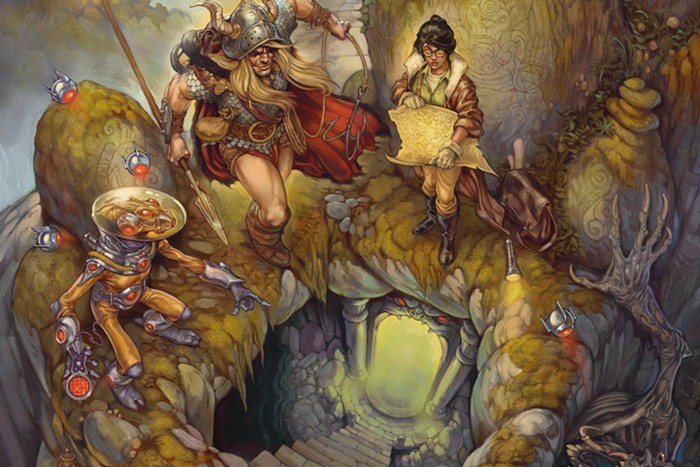Soggy Metaphor
I should state at the outset that Charles D'Ambrosio is a tremendously talented short story writer and I am not and probably will never be, and of course I'm very bitter about that. Furthermore, it's so easy to criticize fiction, because it is untenable and limitless, because the writer has to make so many more big decisions than a nonfiction writer, including "What is this story going to be about?" and "What characters, symbols, and situations will best dramatize its themes?" and "How can I engage the reader in this?"--which are not the questions that nonfiction writers have to wrestle with. (A mountain explorer gets stuck in a storm and has to consume his best friend's posterior to stay alive; that's inherently engaging, see?)
Nevertheless, here I go: Six weeks ago the New Yorker published a short story by former Stranger contributor Charles D'Ambrosio called "The High Divide," about a boy whose father has gone crazy (the boy realizes it over breakfast when said father serves him a bowl of nails with milk, and then squeezes the nails in his hand until blood comes out and says, "I got the nails, I got the nails right here, boy--where's my cross, eh?") and, for whatever reason, stops speaking altogether and is institutionalized. Silence, people's inability to communicate--this is the story's center.
The one thing that really irritated me about the story when I first read it (and you will laugh, as this is such a minor complaint) was a soggy metaphor in the third paragraph. "Next to the kitchen sink was an apple with a bite out of it, the bite turned brown like an old laugh." The overripe melancholy of a partially eaten apple resonates, but an "old laugh" (whatever that is) being "brown" doesn't make any sense. Assigning colors to active abstractions like laughter is a weak, amateurish convention. You could say it smells like gimmickry.
Flash forward: D'Ambrosio, an ursine guy with a wheezy voice, did an annotated reading of "The High Divide" for the Rendezvous Reading Series last week--stopping regularly to talk about the 13-year process of writing the story, and the New Yorker's "little adversarial editorial process"--and at one point he mentioned the minor matter of the apple metaphor, which he said the magazine's editors "really objected to." He fought hard to keep it in, and sought the audience's approval on this point. (Everyone nodded in vigorous support, of course.) But what a shame it was that he hadn't listened to his editors--if he had, the story would have been practically perfect--and, interestingly, ironically, what a significant failure of communication that was.



















